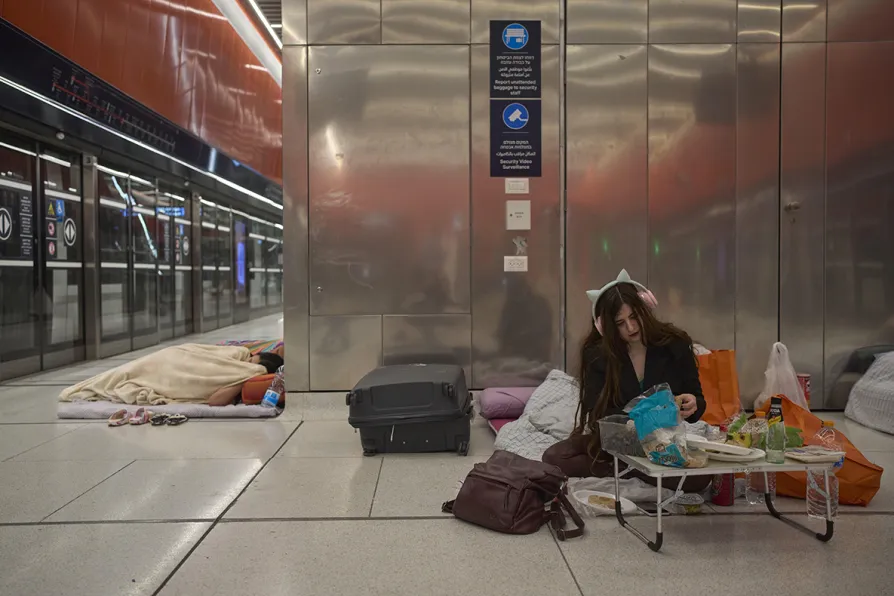
 People take shelter in an underground metro station as a precaution against possible Iran missile attacks in Tel Aviv, Israel, June 22, 2025
People take shelter in an underground metro station as a precaution against possible Iran missile attacks in Tel Aviv, Israel, June 22, 2025
ISRAEL and Iran exchanged barrages of missile fire today, with explosions rocking both Tehran and Tel Aviv.
The mutual bombardment intensified following the US’s bombing of suspected Iranian nuclear sites early on Sunday, which brought Washington into Israel’s unprovoked war on Iran directly.
Explosions were reported over Doha in Qatar, home to the region’s largest US military base with about 8,000 soldiers, as the Morning Star went to press, in a possible sign of Iranian retaliation. Iran had warned it would consider US bases military targets following Sunday’s bombings.
Israel bombed access roads to the Fordo uranium enrichment facility, which was directly targeted by US B2 stealth bombers the day before with powerful “bunker-busting” bombs.
International Atomic Energy Agency chief Rafael Grossi repeated his appeal to both countries to stop trying to bomb nuclear sites, warning of radiation risks. However, he appeared to demand Iran — which claims to have removed nuclear material from the sites before they were bombed — announce its whereabouts despite ongoing Israeli attacks. “Any transfer of nuclear material from a safeguarded facility to another location in Iran must be declared,” he said.
Israel also claimed hits on Tehran’s Evin prison and on the headquarters of the Revolutionary Guards, a politicised branch of the military, and the city’s Palestine Square. Huge power cuts hit southern Israel amid Iranian strikes, but its warning systems and shelters continue to prevent deaths on the scale it is inflicting on Iran, with the official Israeli death toll having remained at 24 since the first days of the conflict. Iran says over 400 of its citizens have been killed.
Israeli and US war aims remained unclear, with US President Donald Trump suggesting on his Truth Social social media platform that “if the Iranian regime is unable to make Iran great again, why wouldn’t there be regime change?” Hours before, Defence Secretary Pete Hegseth had denied regime change was a goal. Much of Mr Trump’s voter base is hostile to US involvement in foreign wars.
Fears are growing Iran might try to close the Strait of Hormuz, a key waterway for the export of fossil fuels from the Gulf states, through which a third of global liquid natural gas and a fifth of oil is carried. US Secretary of State Marco Rubio has appealed to China to persuade Iran not to try to close the narrow strait between Iran, Oman and the United Arab Emirates.

While Trump praises the ‘successful’ attack on Iranian nuclear sites, the question arises as to the real motives behind this escalation. MARC VANDEPITTE explores the issues












